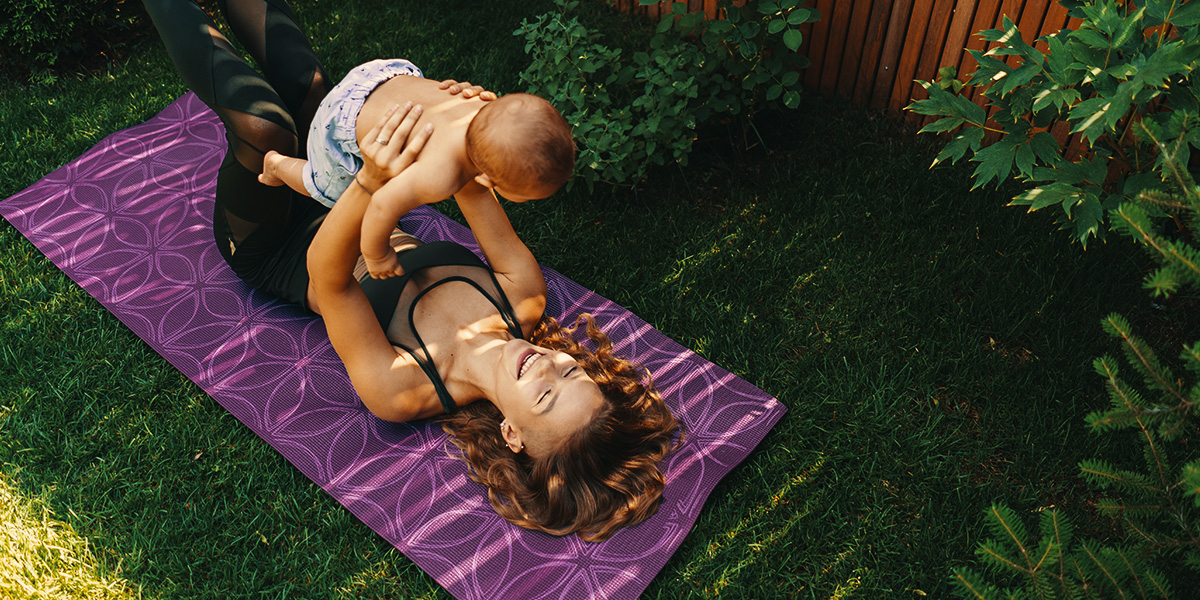There’s nothing more life-changing than being a new mom. It’s an amazing time period, sometimes referred to as the “baby bubble.” But being a new parent is often far from perfect Instagram moments. It can be a challenging time.
According to Statistics Canada, nearly one in four Canadian moms report struggling with post-partum depression (PPD) and anxiety. And during the pandemic, postpartum mental health visits for new moms increased by 30%.
Are you a new mom experiencing symptoms consistent with anxiety or post-partum depression? You might be experiencing mood swings, sadness, irritability and fatigue. If so, you’re not alone.
What is post-partum depression (PPD) and post-partum anxiety?
According to the Centre for Addiction and Mental Health, PPD is more than just the “baby blues.” It is a more serious depression that lasts longer, and usually starts within the first month after childbirth. But new moms are still at risk throughout the entire first year. Here are some signs of PPD:
- Depressed mood or anxiety
- Loss of interest in things you used to enjoy
- Changes in weight and appetite, which can include gaining or losing weight
- Restlessness, jumpiness and edginess
- Feelings of guilt and/or worthlessness
- Concentration issues
Post-partum anxiety is when a person experiences severe anxiety after having a baby or becoming a parent. Of course, some level of worry is expected after welcoming a new baby. But, if you have post-partum anxiety, the worry can be all-consuming. It often causes irrational fears or excessive worries. Post-partum anxiety can happen along with post-partum depression. And while they share many of the same symptoms, they’re not the same.
Anxiety and stress can weigh heavy on you. Especially when you’re expected to be over-the-moon with happiness. That’s why it’s important for new moms to take steps to better cope after childbirth. Here are some ways to get started.
5 ways to improve your mental health as a new mom
1. Set small goals you can achieve
When baby is asleep, you may feel the need to be productive. Think cramming in a shower, the dishes and folding laundry. Try to resist the urge to take on numerous tasks with the limited energy you have. Instead, set manageable, smaller goals. For example, do the dishes first. Then sip a hot tea and watch some TV, call a friend, or journal. The time you take for yourself will leave you feeling refreshed. And that’s a great way to boost your spirits. Be kind to yourself, especially in the early days. According to the Canadian Medical Association Journal, new mothers are highest risk for PPD during baby’s first 3 months.
2. Maintain healthy habits
Research reveals that parents lose an average of six months of sleep during a baby’s first 24 months. That’s probably no surprise to new parents. Sleep deprivation can often mimic some of the signs of PPD, including feeling irritable or overwhelmed. The good news is that moderate exercise may improve your mental health. How? It can help reduce the risk of depression and nurture positive feelings, while also contributing to better sleep (which is rare as a parent to a newborn). Look into low-impact options like yoga, weights or walking to engage both body and mind. And make sure to talk to your doctor before you start. Most physicians recommend waiting six weeks after baby is born.
Read more: 5 tips for working out at home
Try to maintain a healthy diet. One of the symptoms of postpartum depression is changes in weight or appetite. This includes gaining or losing significant amounts. Staying in tune with your body can help you understand the potential signs of PPD.
Read more: 10 tips for healthy eating on a budget
3. Ask for help and build positive relationships
Support is key during pregnancy and the baby years. Accepting help can be tough for some. Reach out when you feel overwhelmed. Try voicing a specific request like a meal, a grocery pick-up or holding the baby while you shower. Chances are, your partner, family member, friend or neighbour will be happy for the chance to help. Giving them a specific task allows them to feel useful, too.
You might also want to join a new parent group. Social media offers tons of support options. Local groups may meet in parks or during outdoor walks or activities. It’s important to have positive relationships that make you feel like you aren’t alone. Speaking with someone who understands is bound to bring a sense of calm on those tough days.
Don’t know who to ask about moms’ groups? You can:
- Reach out to your local community centre
- Talk to a doctor or therapist
- Check with your HR department at work
- Use the Postpartum Support International (PSI) support group finder for Canada
- Check the YMCAs of Canada for Family Support Programs specific to your region
4. Ease back into work after maternity leave
Modify your expectations of yourself when you return to work. Four hours of Zoom call meetings sounded doable before you left work. But you may feel more tired now. Do your best, but keep your mental health in mind. Keep the lines of communication open and reach out to your employer if needed. They can also help you access benefits for your growing family.
Read more: 5 financial tips every new parent needs
5. Stay in touch with your doctor
Communicate openly with your doctor, who can help you get the assistance you need. Your doctor may advise you to talk to a therapist for additional help.
Lumino Health’s provider search can help you find various health-care providers in your community, including licensed psychologists.
PPD is a treatable condition. Taking steps to safeguard your mental health can do wonders for you and for your family. Know that you are doing a great job and there are helpful resources available to you.
Want to take your health journey further?
We're giving you access to the Toronto Raptors Health Experts with Sun Life Healthy You.




